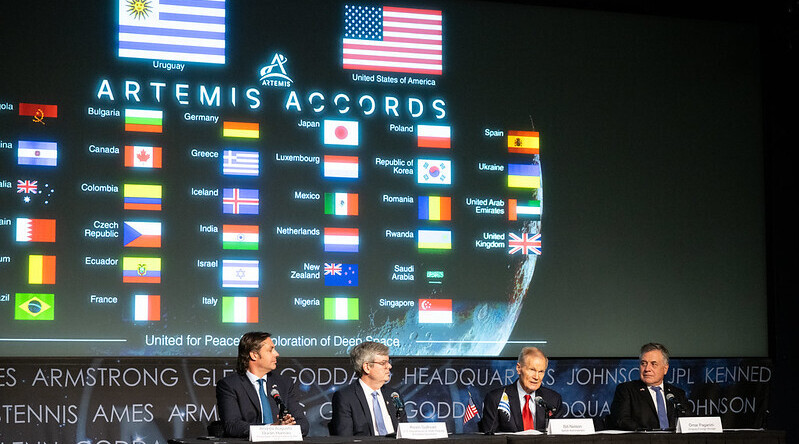Is a far-reaching Chinese navy a threat to American naval superiority or to the West? Is China simply a major power, peacefully rising and pursuing its natural national interests? Perhaps, ruling the waves doesn’t have the same importance in the 21st century? What do you think?
Armies are land-based, controlling the traditional sources of power in world affairs, population, and resources. Boots on the ground win wars.
Airpower and unmanned vehicles can extend an army's range, but airplanes usually need landing strips and over-flight rights, keeping the army's reach regional.
In contrast, sea power can be a mark of global interests. Many of the world's waterways are international spaces.
Naval supremacy has been a strategic goal of global powers since the 16th century. A navy's mobility can gather distant resources, and isolate, attack, or resupply armies.
Aircraft carriers became dominant naval instruments because they project massive power over huge distances; they combine a secure landing strip with global mobility.
For decades, the U.S. has ruled the world's waves. But in August of 2011, China launched its first aircraft carrier and is reportedly building more. Is China's naval build-up a threat?
Judging power requires gauging intentions. A report in The Economist magazine notes that "...China has become more focused on acquiring the means to project power farther afield, the better to defend shipping lanes, it says, and to help relief efforts." The Economist goes on to say that "Officials describe the aircraft-carrier programme partly as a prestige project."
But Chinese intentions are opaque, and some American officials call on China to clarify its goals and defend its increased military spending.
Is a far-reaching Chinese navy a threat to American naval superiority or to the West? Is China simply a major power, peacefully rising and pursuing its natural national interests? Perhaps, ruling the waves doesn't have the same importance in the 21st century? What do you think?
For more information see:
China's aircraft-carrier: Name and purpose to be determined, The Economist, August 13, 2011, p. 19.
Photo Credits in order of Appearance:
Staff Sgt. Stacy L. Pearsall/U.S. Army
Tech Sgt. Hank Hoegen/U.S. Air Force
Mass Communication Specialist 2nd Class Jeremy M. Starr/U.S. Navy
Cornelis Claesz. van Wieringen (painting)
Mass Communication Specialist Seaman Stephen Rowe/U.S. Navy
Mass Communication Specialist 3rd Class Chris Williamson/U.S. Navy
Mass Communication Specialist 1st Class Chad J. McNeeley U.S. Navy
Petty Officer 2nd Class Felix Garza, U.S. Navy
Shizhao
Samantha Appleton
Mass Communication Specialist 3rd Class Ben A. Gonzales/U.S. Navy
Mass Communication Specialist 1st Class David Mercil/U.S. Navy


